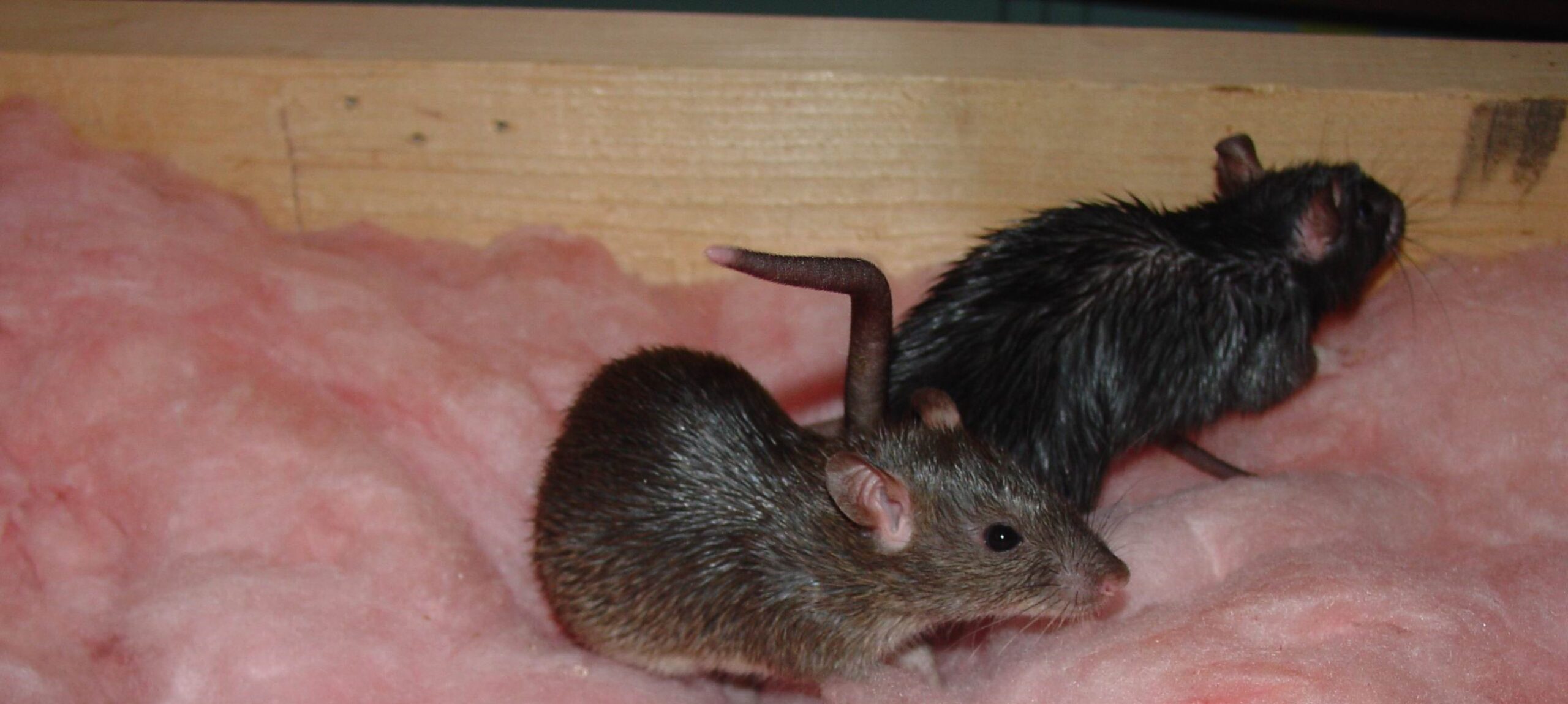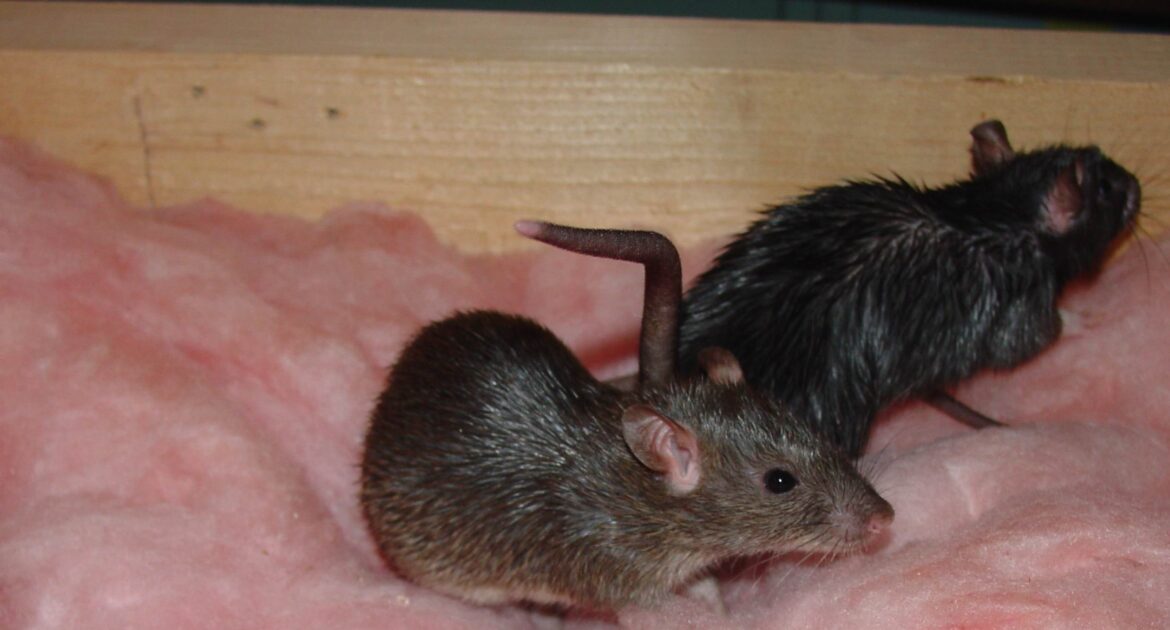You hear a scratching noise in your walls late at night. Your mind starts racing with worry.
Could there be rodents living in your home? If so, you might wonder: do rats spread disease?
This question keeps many homeowners awake at night, and for good reason. The truth about health risks from rats is something every family should understand.
Rats have lived alongside humans for thousands of years. While they might seem like harmless animals, these rodents can carry serious illnesses that affect people.
The answer to “do rats spread disease?” is yes – they absolutely can. But don’t panic just yet. Learning about rat-borne illnesses helps you protect your family and make smart choices about your home’s safety.
Many families in Maple Ridge face this exact concern when they discover signs of rodents in their homes.
You want to know what diseases these animals carry, how they spread them, and what you can do to stay safe.
At Skedaddle Humane Wildlife Control in Maple Ridge, our team knows how to safely remove rodents and protect your home from the health risks they bring. We’ll explore the real health risks from rats and give you the facts you need to make informed decisions.
The Reality of Rat-Borne Diseases
Rats carry more than 35 diseases that can spread to humans. These illnesses range from mild to life-threatening. Some diseases spread through direct contact with rodents, while others spread through their droppings, urine, or saliva. You don’t even need to touch a rodent to get sick – just breathing in contaminated air can be dangerous.
The most common way diseases spread is through contaminated surfaces. When rats walk across your counters, leave droppings in your pantry, or urinate in hidden corners, they create health hazards. These contaminated areas can make you and your family sick if you touch them or eat food that’s been exposed.
Major Diseases Carried by Rats
Let’s take a closer look at six major diseases that rats can spread.
Hantavirus Pulmonary Syndrome
This serious lung disease comes from breathing in air contaminated with rodent droppings or urine. You might not even see the contamination – tiny particles can float in the air for hours. Early signs feel like the flu:
- Fever and chills
- Muscle aches
- Headaches
- Nausea and vomiting
As the disease gets worse, it attacks your lungs. This makes it hard to breathe and can be deadly without proper medical care. The scary part is that symptoms can take weeks to show up after exposure.
Salmonellosis
You’ve probably heard of salmonella from food poisoning cases. Rats carry this bacteria and spread it through their droppings. When they walk across your food or dishes, they leave behind invisible germs. Eating contaminated food leads to:
- Stomach cramps
- Diarrhea
- Fever
- Vomiting
Most people recover in a few days, but young children and older adults face higher risks of serious complications.
Rat-Bite Fever
Despite its name, you don’t need a bite to get this disease. Simply handling contaminated materials or breathing contaminated air can make you sick. This bacterial infection causes:
- High fever
- Muscle pain
- Headaches
- Skin rashes
- Joint swelling
Without treatment, this illness can spread to your heart, brain, or lungs. That’s why quick medical attention is so important.
Lymphocytic Choriomeningitis (LCM)
This viral infection affects your brain and spinal cord. House mice carry it more often than rats, but both rodents can spread it. The virus spreads through:
- Breathing contaminated air
- Direct contact with rodent materials
- Bites or scratches
Early symptoms look like a bad cold or flu. But in severe cases, it can cause brain swelling and permanent damage.
Plague
Yes, rats can still carry the same plague that caused historical epidemics. While rare today, it still exists in some areas. Fleas that live on infected rodents spread this disease to humans. Modern medicine can treat plague, but only if doctors catch it early.
Leptospirosis
This bacterial infection spreads through water contaminated with rodent urine. You can get sick by:
- Swimming in contaminated water
- Walking barefoot on wet, contaminated ground
- Drinking contaminated water
The disease attacks your kidneys, liver, and other organs. Some people recover quickly, while others face serious complications.
How Diseases Spread in Your Home
Rats don’t need to bite you to make you sick. These clever animals find many ways to spread disease throughout your home. They squeeze through tiny gaps – some as small as a quarter – to reach food and shelter.
Once inside, rats leave contamination everywhere they go. Their droppings dry out and crumble into dust. When you clean, vacuum, or just walk around, this dust gets into the air. Breathing it in can make you very sick.
Rats also love to chew things. They gnaw on food packaging, leaving saliva and germs behind. They walk across dishes, counters, and utensils with dirty paws. Every surface they touch becomes a potential health hazard.
Their urine creates another problem. Rats use urine to mark their territory, leaving invisible trails throughout your home. These trails can contaminate large areas without you knowing it.
Why Does Professional Wildlife Control Matter?
Many people think they can handle a rodent problem themselves. This thinking puts families at serious risk. Cleaning up after rats requires special equipment and training. Even dead rodents pose health dangers if not handled properly.
Professional wildlife control experts understand these risks. They know how to safely remove contamination without spreading diseases. They also know how to find all the hidden areas where rats might be living.
Trying to clean rat droppings yourself can actually make the problem worse. Sweeping or vacuuming stirs up dangerous particles into the air. Using the wrong cleaning products can spread germs instead of killing them.
Prevention Is Your Best Protection
The best way to avoid rat-borne illnesses is to keep rodents out of your home. Rats look for three things: food, water, and shelter. Take these away, and they’ll look elsewhere for a home.
Seal up entry points around your house. Check for gaps around pipes, vents, and doors. Rats can fit through surprisingly small spaces, so don’t ignore tiny cracks.
Keep food in sealed containers made of glass or metal. Rats can chew through cardboard and plastic easily. Clean up spills and crumbs right away – even small amounts of food attract these animals.
Fix water leaks and eliminate standing water. Rats need water to survive, so removing water sources makes your home less attractive to them.
Smart Solutions for Rat Problems
If you discover signs of rats in your home, don’t wait to take action. The longer rats live in your house, the more contamination they create. This increases your family’s risk of getting sick from rat-borne illnesses.
Professional wildlife control services use special one-way doors that let rats leave but prevent them from coming back. This humane approach solves the problem without creating more health risks. These experts also know how to safely clean and disinfect contaminated areas.
Your Family’s Health Comes First
The question “do rats spread disease?” has a clear answer: yes, they do. Health risks from rats are real and serious. But with the right knowledge and professional help, you can protect your family from rat-borne illnesses.
Don’t take chances with your family’s health when dealing with rodent problems. The diseases rats carry can cause lasting harm or even death in severe cases. Professional help ensures safe, effective removal of both the animals and the health hazards they leave behind.
If you live in Maple Ridge and suspect rats in your home, contact Skedaddle Humane Wildlife Control right away. Our team safely removes rodents using proven humane systems and thoroughly cleans contaminated areas. We understand that health risks from rats require immediate attention, and we’re here to help protect your family. Request an estimate today to learn more about our comprehensive wildlife control services.




